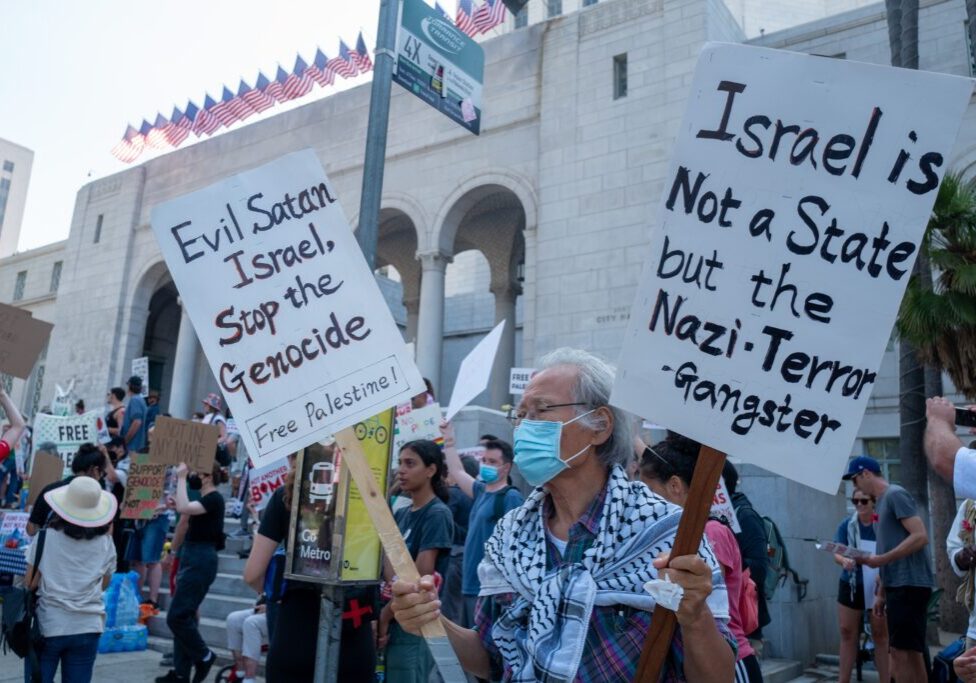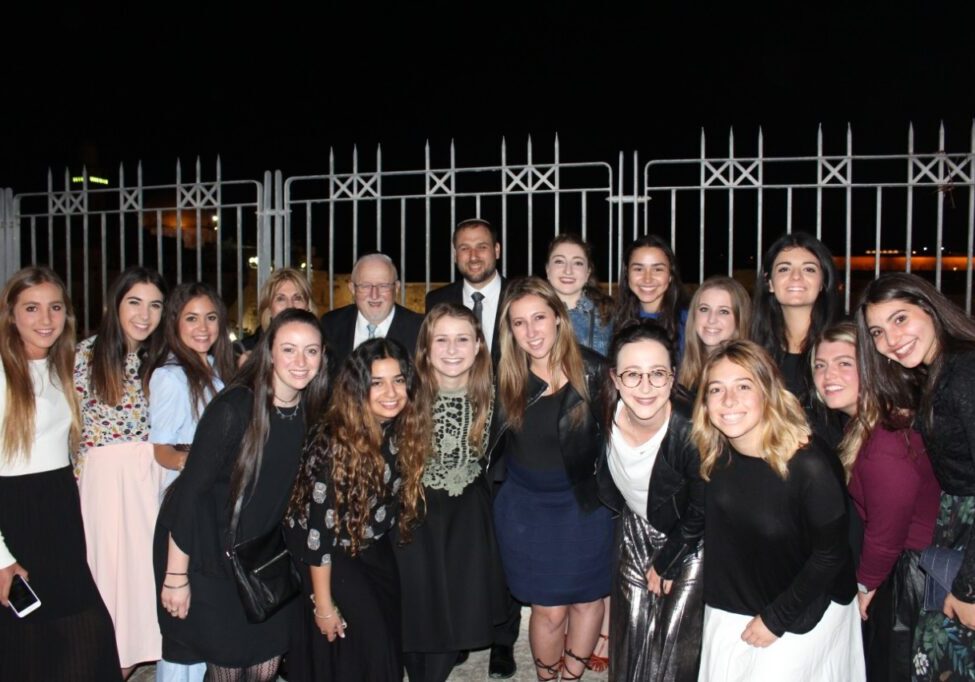Australia/Israel Review
Bunker Mentality
May 13, 2005 | Jeremy Jones
Seduction by evil
By Jeremy Jones
The question of evil and the way human beings justify brutality was a recurrent theme at the UNESCO-sponsored conference on “Religion in Peace and Conflict” held in Melbourne in mid-April. From the opening presentation on “The Challenge of Religious Violence”, through a panel discussion on “Violence in the Name of God”, to a working session on “Unravelling Religious Conflict and Terrorism”, delegates addressed the way totalitarians clothed in spiritual garb inspire, incite and justify acts which are anathema to any ethical system or society.
While participants had no difficulty in condemning any and all acts of religiously-justified violence, there were occasional submissions to the effect that legitimate grievances were at the core of all, or at least some, terrorists’ agendas. The conference was not focused on terrorism and few of the government officials, academics, religious leaders and NGO representatives present would have claimed expertise in that area, but there was a genuine attempt to understand how it was that people could believe they are justified in murdering others in the name of a better society.
Muslim delegates in particular took every opportunity to underline the differences between their beliefs and those of the followers of al-Qaeda or any others who claim Islamic justification for taking the lives of their real or perceived antagonists. Those who had come from regions in turmoil had witnessed the way in which otherwise unexceptional people had become embroiled in extraordinary events and sometimes found themselves enmeshed in situations which had them drawn into subservience to immoral and sometimes irrational belief systems.
When the “War on Terror” is a distant memory, it will be instructive to see how servants from the court of Osama, Hezbollah shock-troops and al-Ansar apparatchiks explain their involvement in the service of inhumanity.
Watching “Downfall”, Oliver Hirschbiegel’s feature film on the last days of Adolf Hitler, viewers cannot fail to be struck by its portrayal of the complete subjugation to the demented and destructive dictator of the Hitler’s personal staff, military commanders, co-conspirators in evil and “ordinary” Germans.
Given that, for all its protestations, this is as much a work of moral self-justification as of history, drawn as it is largely from the testimony of self-interested parties, “Downfall” will serve a worthwhile purpose if it contributes to understanding of the seductive power of evil and the pathology of totalitarian racism.
The film’s central figure, Traudl Junge, is portrayed as a naïve, almost saintly figure, making no reference to her background. The real, as against the “Downfall”, Traudl signed up for the Nazi League of German Girls in 1935 and in 1938 was allowed into the elite Faith and Beauty organisation, which had as its mission “to raise young women to pass on the National Socialist philosophy of life”. She had impeccable ideological and political credentials by the time she joined Hitler’s inner circle, which were furthered when she married Hans Junge, who had served as Hitler’s orderly for three years and was killed fighting with the Waffen-SS in 1944.
The most dramatic voices in the film protesting against Hitler’s inhumanity come from Waffen-SS members.
Ernst Gunther Schenck is presented as a selfless hero, labouring on behalf of distressed victims in a field hospital, and then in the bunker repeatedly asking officers why they should obey Hitler when the result was certain death. We are not told that, after the war Munich University refused to reinstate Schenck to his chair because he was implicated in the conduct of “frivolous” medical experiments on inmates in the Mauthausen concentration camp.
Waffen-SS General Wilhelm Mohnke is similarly portrayed as a humanitarian pleading with Hitler and arguing with Goebbels. Mohnke’s Waffen-SS unit, the historic record shows, massacred captured British soldiers and murdered surrendered Canadian troops.
Other characters also lack historical credibility, to a large part due to the fact that the film is reconstructed from testimony by individuals who had a vested interest in depicting themselves as victims rather than individuals endowed with free will.
I do not intend, in this column, to enter the debate as to what the film reveals about the current German national psyche, but one would hope that no-one, German or otherwise, believes this is a definitive account of Nazism or even a substantial part of what any person needs to know about the evil of Nazism. What I hope the film does do is draw a clear nexus between the incitement of racism, of the expression of evil words, to the commission of heinous, destructive, brutal actions.
My dealings with extreme right-wingers leads me to believe that they will applaud Bruno Ganz’s widely-acclaimed depiction of Hitler, as he is not only clearly a human but regularly rails against Jews and the people who “betrayed” both him and his global design.
I found the most chilling scene in the film to be the depiction of Joseph and Magda Goebbels murdering their own children with the pretext that death was better for them then growing up in a world without National Socialism.
Their attitude was juxtaposed with that of a father who tries to extricate his 14-year-old son from the ideological and emotional clutches of the Hitler Youth.
Which brings me back to the issue of religious and quasi-religious fanaticism. Today, we have religious fanatics, or fanatics acting in the name of religion, who will instruct parents to send children to kill themselves. We even have some parents who mouth platitudes in support of those who inspire and/or force them to collaborate in having their own children commit suicide to gain propaganda points or to kill other innocent human beings.
“Downfall”, for all its shortcomings, depicts Nazism as not only destructive but self-destructive.
The same can be said for Islamism’s effect on Muslims and Islamic societies, and all rational people will be waiting and praying for that form of totalitarian evil to end in a “downfall” which comes sooner rather than later.
Tags: Antisemitism






